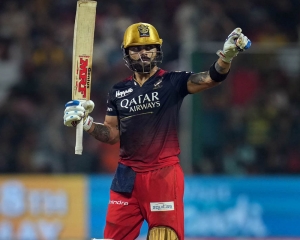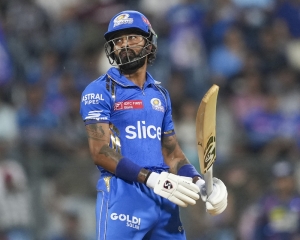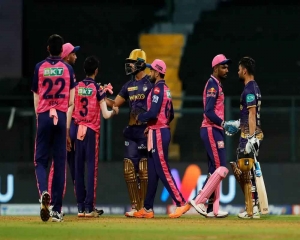While Thalassemia testing has been integrated into the reproductive and child health (RCH) programmes under the National Health Mission (NHM) in some States, it is yet to be universally adopted across all regions in addressing the prevalence of this genetic disorder.
Union Health Secretary Apurva Chandra on Wednesday advocated for inclusion of compulsory Thalassemia testing in the existing reproductive and child health (RCH) programmes under NHM as a means to curtail the prevalence of the disease even as he added that some States have included this in their public health programmes and activities; other States will be urged to include and expand screening and testing for Thalassemia.
He said timely detection and prevention are the most effective strategies to tackle the genetic disorder.
Chandra, who was speaking at an event here to mark the International Thalassemia Day, said there are almost 1 lakh Thalassemia patients in the country, with approximately 10,000 new cases reported each year. The Secretary emphasized on the urgency for proactive intervention aided by timely detection through screening.
Chandra also highlighted the critical need for wide awareness around the subject. He stated that “still many people are unaware of this disease and how this can be prevented. It is imperative that all stakeholders in this arena collaborate for a nationwide campaign to enhance awareness on Thalaseemia”.
Dr Rahul Bhargava Director, Department of Clinical Hematology and Bone Marrow Transplant, Fortis Hospital Gurugram said, “Thalassaemia is an inherited disorder which affects millions of kids. We wish to see a thalassaemia-free India by 2030. It is important that all future couples should be screened before pregnancy.”
He explained that in case one or both the parents have this condition, it is a good idea to consult the doctor to address the risk appropriately. Prevention and early detection are perhaps the most feasible and cost-effective ways to control this disease. The need of the hour is an integrated plan of action including mass screening for carriers before marriage and before conception, said Dr Bhargava.
Some symptoms of thalassemia include weakness, fatigue, slow growth, pale appearance, abnormal swelling, abnormal bone structure (especially on the face and skull), heart problems, and iron overload.
Thalassemia usually requires lifelong treatment with blood transfusions and medication. The main treatment methods are: blood transfusions, removing excess iron or chelation therapy, stem cell or bone marrow transplants, and treating other problems.
In addition, efforts must also be directed towards motivating gynaecologists and pathologies to ensure that every pregnant woman goes through the HbA2 test before 14 weeks of pregnancy as this can help in the timely diagnosis of thalassemia, said Dr Nita Radhakrishnan, Associate Professor and Head of the Department of Pediatric Hematology Oncology, Post-Graduate Institute of Child Health, Noida.

























